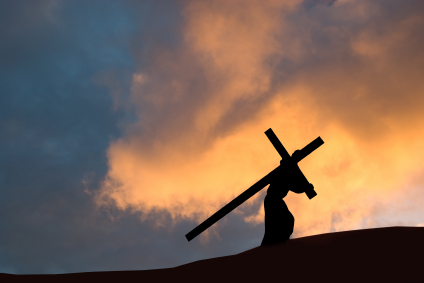I was thinking today about the 'right to die' push that has been steadily gaining momentum in the United Kingdom.
Fr Tim Finigan has today posted on a man suffering 'locked-in' syndrome and how he differs in his belief about his life's value while living with the condition to that of another man who has publicly and through the courts campaigned for the right to die without the prosecution of his doctor.
I don't know what either of these men's private beliefs are about God and religion. It may be that some people, when it comes to such terrible afflictions are naturally positive, whereas others are naturally negative. Despite the scientific and medical progress that we have made, however, there does seem to be a huge void left by atheism which means that when people are diagnosed with terrible conditions that it will be the case that some will retain natural optimism and some will feel like giving up the ghost completely. I admire and take my hat off to anyone who is willing to remain positive and courageous in the face of severe adversity. What atheism has left us with however, is no real and meaningful response to suffering. What we've lost with atheism, and perhaps Protestantism as a whole, is the sense that suffering has meaning.
What we've lost, I expect because of Reformation thought and Enlightenment thought, is not the sense that to suffer is necessarily to be heroic, but that to suffer in this World is glorious. Suffering could rarely feel glorious, perhaps it does to a few eccentrics, but Christianity, real Christianity has affirmed for nearly 2,000 years that suffering for Christ is glorious. The Catholic Faith has witnesses, in the Martyrs and the Saints (known and unknown) who affirmed by their lives that the way to the Resurrection is reached by the Via Dolorosa, the way of the Cross. We've lost the idea, the concept, the sense that patiently accepting suffering and the Cross is salvific.
That is to say, that those who accept their suffering for the love of God bring a whole new supernatural dimension to suffering itself. It is only by suffering and death that the Lord Jesus redeems humanity. It is only by suffering and death that the Martyrs' blood is the seed of the Church. When St Anthony of Padua set out to join the Franciscans in Morocco, he did so in order to be a glorious Martyr. The Lord had other plans for him, plans which would secure the Salvation of many, but St Anthony of Padua desired martyrdom.
Today he would be called quite mad by men and women inside and outside the Church. We've lost the sense of the power of suffering for God and men, in as much as we've lost the sense that real good can come out of our suffering. I know holy men and holy women who I know suffer a great deal, but who offer it up for the salvation of souls and for other intentions, such as the refreshment and repose of the souls in Purgatory.
All such concepts would be anathema to atheists, but actually the atheist response to suffering seems to be simply nihilism and the 'right to die' and escape suffering altogether. It is a perfectly human response to avoid suffering. None of us desire it. Even Our Blessed Lord wished in the Garden to be spared the Chalice that awaited Him. Few of us would seek it, but I cannot for the life of me see a better response to it than the Catholic Church's response to it. It may very well be that when a man in Berkshire offers to God his suffering in his gammy leg, or his migraines, or his inability to walk after a car crash, that he rescues the unborn baby of a woman in Bolivia, or frees the soul of a very grateful person indeed from Purgatory and into the light, peace and joy of Heaven.
Of course, the other side of the Christian response to suffering is the duty of those who know the person to care for them, to pray for them and for those responsible for that person's care to show that person compassionate care and relieve their pain. The problem is that once all of the Christian vision is ridiculed as 'fairy stories', society has no replacement response to suffering that offers hope and certainly no response that says that there is glory and redemption in suffering - for those who suffer and for perhaps the whole Church and even the whole World.
Suffering maybe ugly and very unpleasant, or even an evil, but it is the method by which God chose to redeem our fallen human nature and restore us to the possibility of friendship with Him. Suffering has been made holy by the All Holy One. Christ's suffering and death became the source of our salvation and the source of our sanctification. Our suffering, therefore, if accepted and offered to God, means that we can share in Christ's passion and therefore also be sharers in the ongoing redemption of the human race.
In 20 years time, are Catholics going to really be standing outside extermination clinics for suffering adults with signs saying 'Feeling suicidal? We're here to help', only to be shouted at and jeered at by atheists with signs saying, 'It's my life' and 'It's my body' and to be confronted by pro-extermination and suicide enthusiasts outside extermination clinics when we pray for those inside? Will Catholics be seeing our unbelieving mothers, fathers, grandmas, grandpas, friends and relatives go in to the clinics and shouting after them, 'I love you, please don't do this! If I could take all your pain and suffering on myself, I would!'

No comments:
Post a Comment